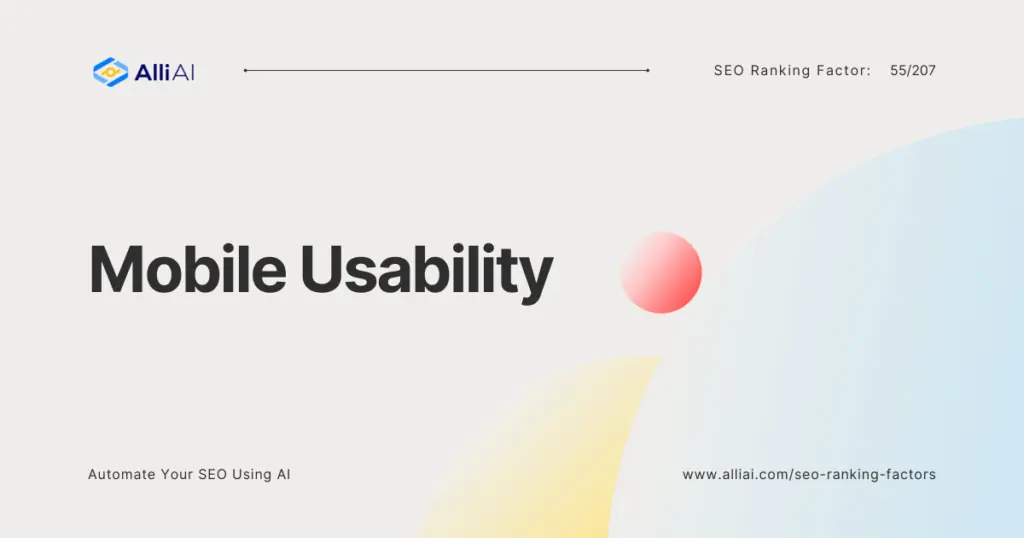What is Mobile Usability?
Mobile Usability refers to how easily users can navigate and interact with your website on mobile devices. This includes the site’s responsiveness to various screen sizes, ease of use, speed, and accessibility. Think of it as making your website hospitable to guests visiting through their smartphones; just as you’d ensure a smooth entry and comfortable stay for a guest in your home, mobile usability ensures users on mobile devices have a seamless and enjoyable experience when they visit your website.
Why is Mobile Usability Important in SEO?
Mobile Usability has become a linchpin in SEO strategies for a very simple reason: the ubiquity of mobile internet usage. Google’s switch to mobile-first indexing underscores this shift, prioritizing mobile versions of content for ranking and indexing. This move reflects the reality that the majority of users now access the internet via mobile devices. Ensuring your website is optimized for these users is no longer optional if you aim to maintain or improve your search rankings.
How Mobile Usability Affects SEO
The relationship between Mobile Usability and SEO is symbiotic. Websites with high mobile usability enjoy better engagement metrics – such as lower bounce rates and longer session durations – which search engines interpret as a sign of quality and relevance, subsequently boosting rankings. Conversely, websites that neglect mobile usability suffer from higher bounce rates as users quickly abandon sites that are difficult to navigate on their devices, thereby negatively affecting their search rankings.
“- Over 50% of global website traffic comes from mobile devices (excluding tablets), highlighting the importance of optimizing for mobile to capture this audience.
– Google’s mobile-first indexing is now the standard for all new web domains as of July 2019, emphasizing the importance of mobile-friendly web design for SEO.
– A study by Adobe found that companies with mobile-optimized sites triple their chances of increasing the mobile conversion rate to 5% or above.”
These statistics demonstrate the critical need for optimized mobile usability not just for user satisfaction but for maintaining competitive SEO rankings.
FAQ
How do I check my website’s mobile usability?
Google provides a Mobile-Friendly Test tool, where you can input your website’s URL to see if it passes Google’s mobile usability criteria. It also offers suggestions for improvement if your site is deemed not mobile-friendly.
Can mobile usability affect my website’s loading speed?
Yes, mobile usability encompasses how quickly the elements of your page load on mobile devices. Sites optimized for mobile tend to load faster, which is crucial because loading time is a significant factor for both user experience and SEO. Google recommends a mobile page loading time of under 3 seconds.
What are the common issues that affect mobile usability?
Common issues include text that’s too small to read on mobile devices, links or buttons that are too close together and hard to tap accurately, and content that doesn’t fit the mobile screen properly, requiring users to scroll horizontally.
Conclusion
Mobile Usability is not just a component of SEO; it’s a seminal aspect which directly correlates with the user experience and site ranking. Given the dominance of mobile browsing, ensuring your website is optimized for mobile users is paramount. By focusing on Mobile Usability, you not only cater to your audience’s needs but also significantly enhance your website’s SEO performance, ultimately driving higher traffic and conversion rates. The era of mobile internet is here to stay, and adapting to this shift through improved mobile usability is not just beneficial but essential for anyone looking to thrive online.






